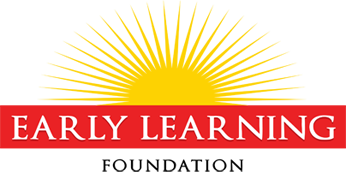Competence or Coverage
Competence or Coverage
“We covered it,” is a familiar expression, “but they just didn’t learn it.” In most schools we continue to deliver far too much content using a rigid schedule which does not encourage teachers to adjust instruction to meet the individual needs of each student.
Crucial skills deserve something better than coverage. To improve early math outcomes and math outcomes for life, we must learn to understand the principles of informed instruction leading to competency.
The principles of informed instruction are simple:
- Clearly identify crucial learning outcomes
- Use systematic measurement to determine the readiness levels of your students in relation to essential outcomes
- Offer informed instruction and carefully monitor progress until these skills/objectives are deeply understood (competency)
- Allow students to move on to more advanced learning as soon as they are ready
With all the content teachers are asked to cover, it may seem daunting to identify which outcomes are crucial. Doug Reeves asks three questions to help determine which learning outcomes deserve all the time needed to achieve competency:
- Does it address knowledge and skills that will endure throughout a student’s academic career and professional life?
- Does it address knowledge and skills that will be of value in multiple content areas?
- Does it provide the essential knowledge and skills that students need to succeed in the next grade level?
The Essential Math Skills Inventory identifies essential math outcomes for preschool through grade three. These are foundational skills that establish number sense and deep understanding of number concepts which are the foundation of math learning for life. Students who learn these skills deeply and joyfully establish a positive trajectory for math learning. They are prepared to succeed in the next grade and beyond.
The Essential Math Skills Inventory is not a framework for curriculum. Many additional skills, projects and activities should be included in the math instructional plan for young students.
The inventory is a framework for assessment, a way to systematically assess and respond to student learning needs.
Without deep understanding of these essential skills, many children learn to memorize facts and formulas to help them solve problems on paper. Without deep understanding, many students reach third or fourth grade and begin to struggle with math. Without understanding basic number sense and concepts, math turns on them and becomes a mystery.
These students decide that math is hard, or that they just don’t have a talent for math. In the age of information and technology, we need better instruction to avoid these patterns of disengagement and math avoidance.
Consider the first and second grade essential math skills. Competency means being able to demonstrate these skills over a period of time, and with many different sets of learning materials or learning contexts. Competency means understanding and applying these skills even on days when you are distracted, not at your best. Competency means understand in a way that will stay with the learner for life.
(1) Counts objects with accuracy to 100
(1) Replicates visual or movement patterns
(1) Understands concepts of add on or take away (to 30)
(1) Adds/subtracts single digit problems on paper
(1) Shows a group of objects by number (to 100)
(2) Quickly recognizes number groups (to 100)
(2) Adds/subtracts from a group of objects (to 100)
(2) Adds/subtracts double digit problems on paper
(2) Counts by 2, 3, 4, 5, and 10 using manipulatives
(2) Solves written and oral story problems using the correct operations
(2) Understands/identifies place value to 1,000
If we race through non-viable content expectations, some of these crucial math outcomes will not be developed to competency for all our students.
In my analysis of many struggling middle and high school math students, they lack competency in some or many of these basic first and second grade skills. It is not because these skills were not “covered” in one or more lessons. But lacking specific knowledge of each child’s math learning needs, a well-intentioned teacher “moved on” to keep up with the expectation for coverage. And one more math student was left behind.
Bob Sornson was a classroom teacher and school administrator for over 30 years, and is the founder of the Early Learning Foundation. He is a national leader calling for programs and practices which support early learning success, the development of self-regulation and empathy, and parent engagement.
Bob is the author of Essential Math Skills: Over 250 Activities to Develop Deep Understanding, the Pre-K to Grade 3 Essential Skill Inventories, Stand Up and Speak Up for Yourself and Others, Stand in My Shoes: Kids Learning about Empathy, Creating Classrooms Where Teachers Love to Teach, The Juice Box Bully, and many other books.
